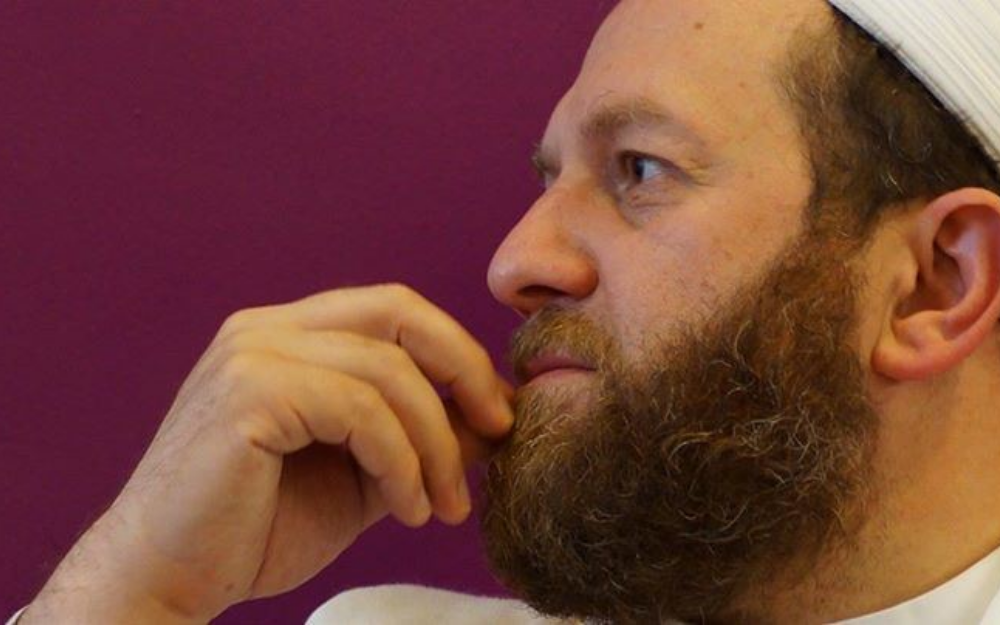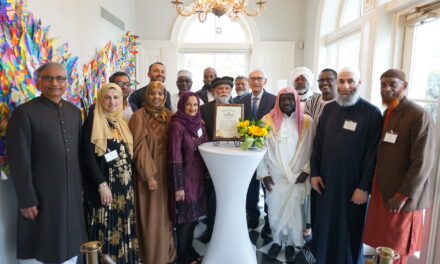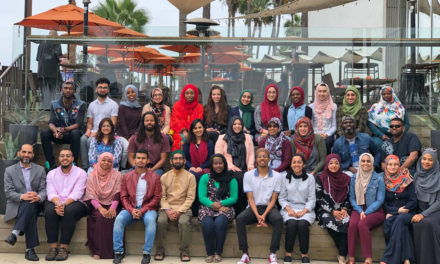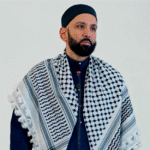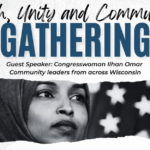Dr. Muhammad Al-Ninowy spoke on the connections between Islam, mental health and physical health at the MMWC’s first conference on mental health and Islam.
“The teachings of Islam address issues specific to our well-being and can positively impact our physical and mental health,” Dr. Muhammad Al-Ninowy told a group of medical practitioners gathered for the Milwaukee Muslim Women’s Coalition’s mental health conference, Making the Effort: Enhancing Cultural Literacy When Working with Muslim Patients.
Dr. Al-Ninowy was a featured speaker at MMWC’s mental health conference, Sept. 18-19. The two-day conference brought together national and local behavioral health experts to address the unique needs of Muslim patients. It was the first conference of its kind in Wisconsin.
“We hope this will be an annual event,” said MMWC president and founder Janan Najeeb. Interest in the conference was very high and registrations reached capacity early, she said.
MMWC organized the conference, held at the Insight Life Learning Institute, 13780 Hope St., Brookfield. It was funded through a grant from the Wisconsin Department of Health Services. The Medical College of Wisconsin approved 9.5 Continuing Medical Education (CME) credit hours for attendees at no charge.
Two other organizations also provided support for the conference: United Wisconsin and the Muslim Mental Health Consortium in Michigan State University’s Department of Psychiatry.
This article is the first in a series reporting highlights from the conference.

Milwaukee Muslim Women’s Coalition’s mental health conference, Sept 18-19, 2021
Islam promotes positive attitudes
“Islam’s teachings have addressed issues such as happiness and life satisfaction, purpose and meaning in life, and hope and optimism,” Dr. Al-Ninowy explained. Consequently, Islam nurtures a positive mental outlook, he said.
Al-Ninowy is the founder and director of the Madina Institute, an Islamic seminary in Atlanta, Georgia, with campuses in South Africa, the United Kingdom, Norway, Sudan and Malaysia. He holds a doctorate in Islamic Studies and is a doctor of medicine.
“A materialistic worldview that sees the universe as ultimately bleak and impersonal evokes a different cognitive appraisal of events than a worldview where there is compassion, love and a higher purpose, one that offers hope and comfort even in the worst of circumstances,” he said.
Hopelessness, which he defined as, “the absence of faith,” is a powerful risk factor for heart attack and cancer, “increasing the death rate two to threefold even in healthy individuals, after eliminating all the other ‘medical’ risks factors.”
In contrast, faith generates hope. Muslims believe God has enabled us to make choices, Al-Ninowy said. “This belief enhances a person’s sense of self and self-empowerment. You have the choice to have a good day today, to choose love rather than hate, doing good over doing nothing. That is the empowerment. That gives you dignity and self-worth.”
Another positive aspect of the Islamic outlook is its emphasis on gratitude, Al-Ninowy noted. “The point of gratitude is not merely theoretical. It is transformative. By expressing gratitude from the heart to the tongue, you immediately shift the focus from a few things going wrong to the overwhelming number of things that are going right.”
Finally, Islam offers guidelines to live by “that impart positivity on the person who follows them,” he said. These guidelines “emphasize compassion, love, forgiveness, courage and gratitude. For example, the Prophet tells us to positively contribute. If you have nothing else, you can give your smile. The more you give, the more you live,” Al-Ninowy said.
“Those qualities help in overcoming serious medical conditions,” he added.

Islam’s health benefits
Islamic practices and beliefs yield many health benefits, Al-Ninowy said.
Meditation and meditative prayer (such as a prayer that repeats a particular phrase), stimulate, according to many studies, areas of the brain involved in regulating emotional responses, including the frontal lobe,” he said. “Increasing activities of these areas of the brain may bring wider effects to help people be less reactionary and enabled to deal better with stressors.”
Holidays and other special occasions also create times for rest, Al-Ninowy noted. “These are psychological buffer zones.”
Likewise, “beliefs like love and compassion or experiencing the presence of God may become integrated into the way the brain works,” he added. “The more certain neural connections in the brain are used, the stronger they become. The more we come back to these positive feelings and emotions, the less stress, anxiety and stress hormone production are observed.”
Some of the benefits of Islamic practice and belief include:
- Higher self-esteem
- Lower rates of and faster recovery from depression
- Less anxiety, psychosis and psychotic tendencies
- Lower rates of alcohol and drug abuse
- Lower rates of suicide
- Less delinquency and criminal activity
- More marital stability and satisfaction
- Better adaptation to bereavement

A cure for loneliness
“Islam focuses on the concept of ‘we’ vs. ‘me,’” Al-Ninowy said. “It connects us with the Creator of all and initiates social connections with other members of the community. It creates a sense of belonging to a group. We worship God in community. You are not alone.
“And by community, I mean all humanity,” Al-Ninowy clarified. “From a religious perspective, we are not from nowhere. Our father is Adam. Love has been passed on to you before you were even born. There is no shortage of love; the only shortage is a willingness to tap into it.
“Our faith teaches us to be good to your parents, good to your spouse, good to your kids. That will improve the quality of your life.”
Islam also emphasizes positive social engagement and continuous striving towards greater marital and family stability, he said.
Islam promotes healthy behaviors
Practicing Muslims are less likely to engage in risky health behaviors like drinking, drugs, smoking, promiscuous sexual behavior and overindulging in food because Islam views these behaviors as vices. Furthermore, devotion to faith is associated with improved compliance with medication, Al-Ninowy said.
In addition, religious rituals, such as prayer and observance of holidays provide structure, regularity and predictability that help us live balanced lives. “When you pray five times a day, you are not praying all day. Your family has rights on you, your body has rights on you. There is time management, with prayer giving time for rest, reflection and tranquility. “
Islamic prayer “encourages meditation (Dhikr) and self-reflection (Muraqabah), increasing mindfulness,” said Al-Ninowy. “Prayer is very beneficial and Islam encourages us to pray five times a day—to experience three minutes of stillness, self-reflection and mindfulness five times a day.”
In addition to discussing the relationship between Islam and well-being, Dr. Al-Ninowy addressed a variety of topics including Prophetic instructions to seek healing through medicine, cultural literacy in treating Muslim patients, the downsides of some religiosity and cultural vs. religious beliefs (in black magic, possession and exorcism)
